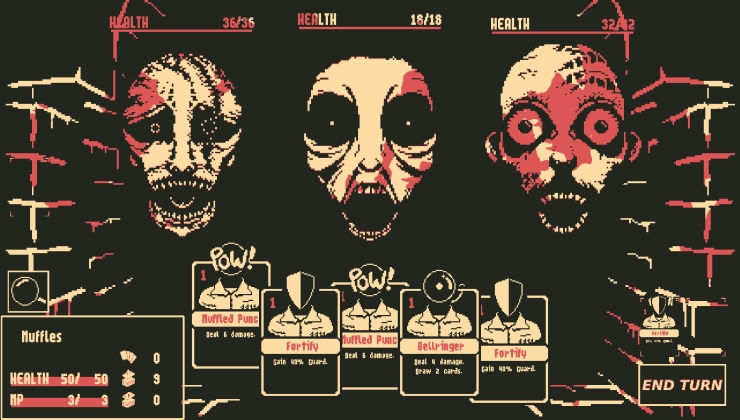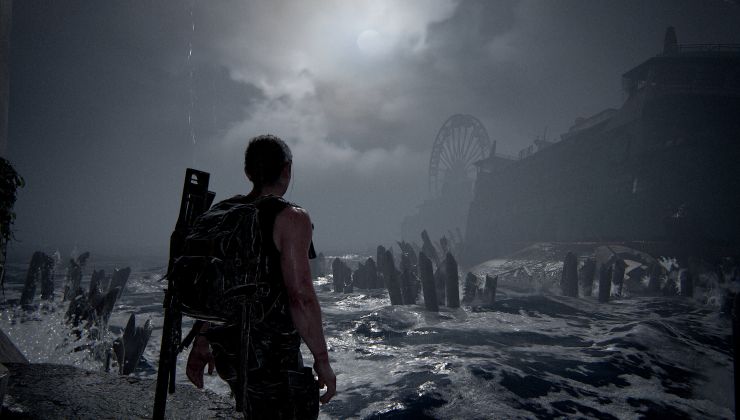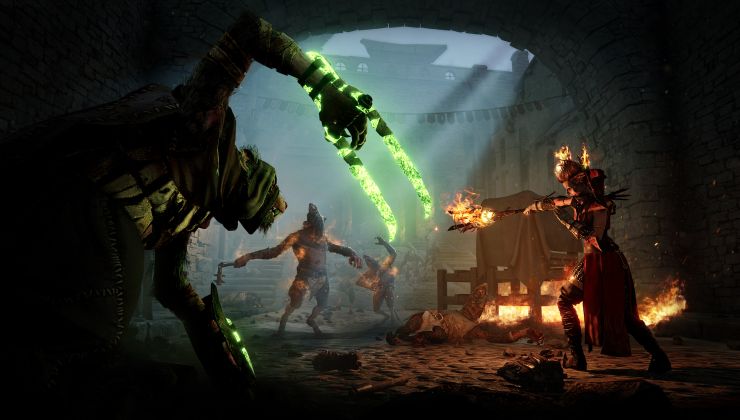TIC-80 [Official Site, GitHub], a 'fantasy computer' for making, playing and sharing tiny games is now officially open source under the MIT license. It was officially announced yesterday on Twitter!
I've seen a few of these fantasy computers appear in the last few years and they are pretty interesting. PICO-8 is another example, but that one has a cost attached to it.
Here's how the developer describes it:
TIC-80 is a fantasy computer for making, playing and sharing tiny games.
There are built-in tools for development: code, sprites, maps, sound editors and the command line, which is enough to create a mini retro game. At the exit you will get a cartridge file, which can be stored and played on the website.
Also, the game can be packed into a player that works on all popular platforms and distribute as you wish. To make a retro styled game the whole process of creation takes place under some technical limitations: 240x136 pixels display, 16 color palette, 256 8x8 color sprites, 4 channel sound and etc.
You might be wondering why these exist and it's valid question! The way I see it is in two parts: fun and to learn. It's an interesting way to learn a little programming and fun for developers who like retro stuff, especially because of the hard limits imposed on people making stuff with it. It's also even more awesome that it's now open source.
I was able to get it built at work today while waiting on other builds. But this was on a Win 10 machine with Visual Studio Community 2017 installed (followed the basic instructions). Did have to do some research and tweak the SDK installation a bit. But eventually got a running TIC-80 going and tried a few samples.
Currently trying to get a linux build done. As expected, many problems but will power through them.
A 'duh' moment I remembered that GitHub repos usally have populate "Releases". Lo and behold, all kinds of platforms there ready to play...
wonder why they chose such low res - modex/MCGA was 320x200, this is half thatIt's even less than Speccy has (256x192)! Still, reducing the available resource pool quite often results in games shining in other areas like gameplay mechanics, replayability, content galore and catchy music (and vice versa!). Isn't that what we all long for?
Also, demoscene, 64 Kb compos and stuff. Sadly, it's not as popular and impressive these days as it used to be in 2000's.
[https://en.wikipedia.org/wiki/Commodore_VIC-20](https://en.wikipedia.org/wiki/Commodore_VIC-20)
Long ago, I used one at school.
Long ago, I used one at school.
You're old! At least we used a [Philips P2000](https://en.wikipedia.org/wiki/Philips_P2000)! Oh wait, oops.
I find these pseudo retro thingies quite funny. On the surface they may appear to be limited like old computers, but when you have a more detailed look, they're still much more advanced than what we had back then. I still enjoy programming for the old 80s systems though.
Long ago, I used one at school.
You're old! At least we used a [Philips P2000](https://en.wikipedia.org/wiki/Philips_P2000)! Oh wait, oops.
I find these pseudo retro thingies quite funny. On the surface they may appear to be limited like old computers, but when you have a more detailed look, they're still much more advanced than what we had back then. I still enjoy programming for the old 80s systems though.
You think that's an Avatar. Nah, it's my real picture. ;)
Ok, I am not sure why everytime I see "Open Source" I expect that I have to build it.
A 'duh' moment I remembered that GitHub repos usally have populate "Releases". Lo and behold, all kinds of platforms there ready to play...
Just now got the linux version built. WOOHOO!










 How to set, change and reset your SteamOS / Steam Deck desktop sudo password
How to set, change and reset your SteamOS / Steam Deck desktop sudo password How to set up Decky Loader on Steam Deck / SteamOS for easy plugins
How to set up Decky Loader on Steam Deck / SteamOS for easy plugins
See more from me